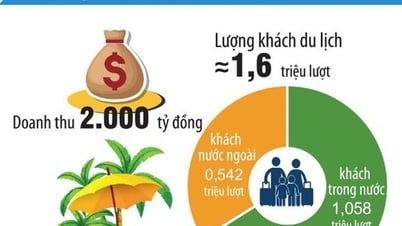The DOJ also issued subpoenas to employees of several major U.S. banks, Bloomberg News reported on March 23. Swiss banks saw similar moves from the DOJ before UBS took over Credit Suisse.
DOJ investigations are aimed at determining which bank employees handled transactions with sanctioned customers and how those customers were screened over the years. Bank executives can then be further investigated to determine whether they broke the law.
Credit Suisse and UBS declined to comment, while the US Justice Department did not respond to requests for comment.

Credit Suisse and UBS (Switzerland) are being investigated by the US Department of Justice (DOJ) over whether financial experts helped Russian oligarchs evade sanctions. Photo: Reuters
The DOJ has pressured Russian oligarchs through sanctions, asset seizures and criminal investigations to force them to stop supporting Russia's military campaign in Ukraine.
In a development related to the US banking crisis, Treasury Secretary Janet Yellen on March 23 reassured that the government 's emergency actions to support customers of Silicon Valley Bank (SVB) and Signature could be deployed again in the future if necessary.
Ms. Yellen: "We have used important tools to act quickly to stop the spread. The strong actions we have taken ensure that Americans' deposits are safe. Of course, we will be ready to take additional action if needed."
Ms. Yellen's statement came amid growing market concerns about the run on small and medium-sized regional banks following the collapse of SVB, specifically whether the government would be willing to support these banks in the event of a run on deposits.
Ms. Yellen offered reassurance on March 23 after bank stocks fell sharply after she said the Treasury Department was not considering any additional plans to guarantee all deposits.

Treasury Secretary Janet Yellen. Photo: Reuters
Ms. Yellen's statement on March 23 seemed to change somewhat, leaving open the possibility that the US Treasury Department could still take emergency actions in the future to prevent widespread instability and maintain large-scale financial stability.
The current FDIC deposit insurance limit is $250,000. Democrats have proposed that Congress consider raising the limit on all deposits after the collapse of SVB, but have faced opposition from Republicans in the House.
The development makes it difficult to pass any bill related to raising deposit insurance because the House of Representatives is currently controlled by Republicans.
Source

















































![[Maritime News] Wan Hai Lines invests $150 million to buy 48,000 containers](https://vphoto.vietnam.vn/thumb/402x226/vietnam/resource/IMAGE/2025/6/20/c945a62aff624b4bb5c25e67e9bcc1cb)



















































Comment (0)